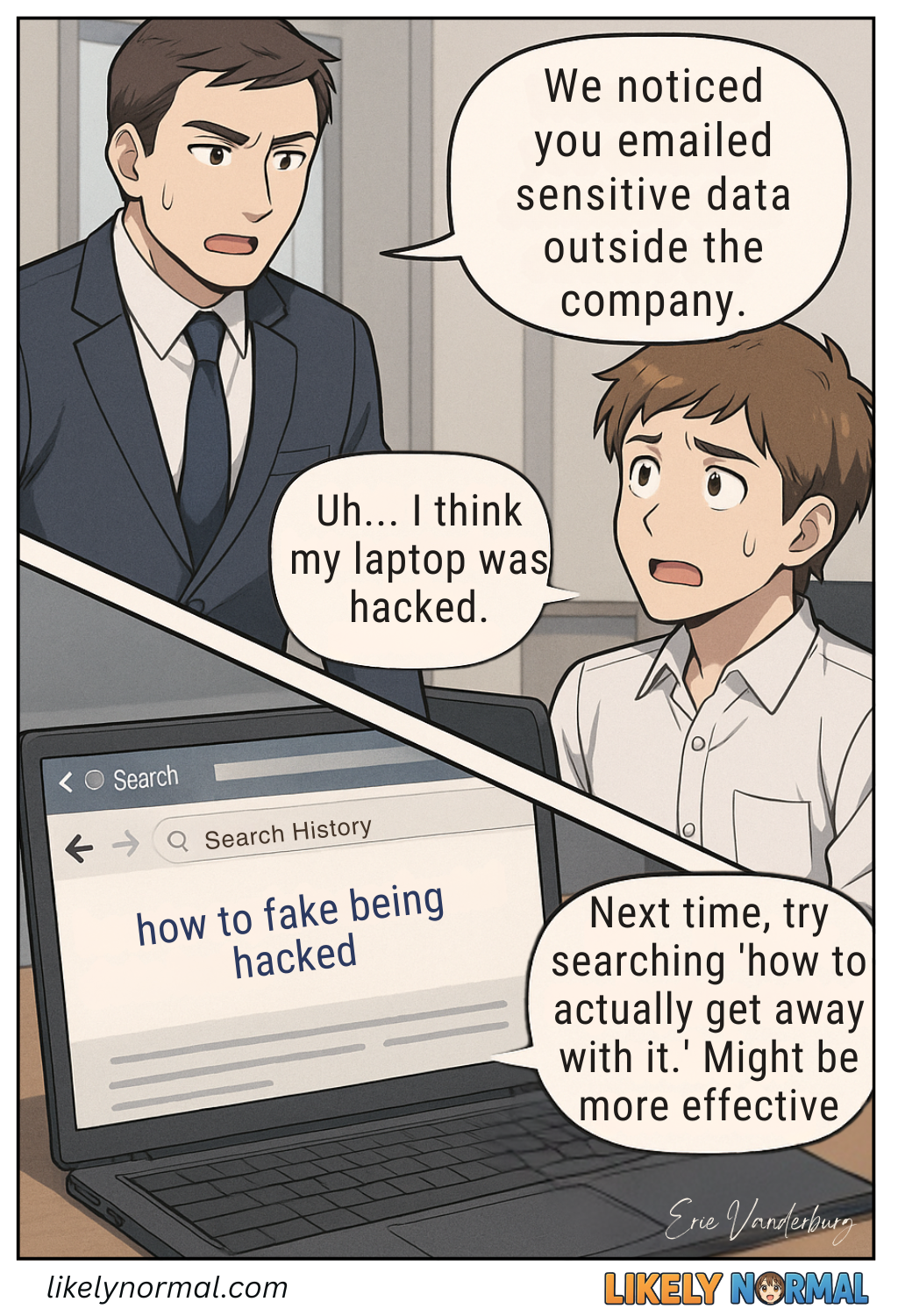Compromised Credibility
Working in cybersecurity, I’ve heard just about every defense there is, but there is something special about the “I was hacked!” claim. Whether it’s a suspicious Facebook post, an accidental email reply-all disaster, or a mysteriously maxed-out credit card, someone, somewhere, is blaming it on a hacker.
Most of these so-called hacks are about as convincing as a dog blaming the cat for eating the last slice of pizza.
- The “I Didn’t Post That!” Hack – When your cousin’s late-night rant about pineapple on pizza suddenly appears on Facebook, and they swear a cybercriminal took over their account. Sure, Jan. The hacker just happened to share your exact opinions in your exact writing style. What are the odds?
- The “My Mouse Moved On Its Own!” Incident – The classic workplace excuse when HR finds out you spent three hours on shopping sites instead of finishing that report. “I swear, my computer was possessed!” (Fun fact: IT can tell when you’ve been scrolling Amazon instead of Excel. The “ghost cursor” defense never works.)
- The “My Kid Did It” Loophole – A timeless classic. Suspicious Google searches? “Must’ve been my toddler!” Never mind that your “toddler” somehow knew how to order a year’s supply of energy drinks at 2 AM.
The truth is, actual hackers have better things to do than post embarrassing selfies from your camera roll or accidentally like your ex’s vacation pics from 2017. If your digital alibi sounds like the plot of a low-budget spy movie (“A shadowy figure must’ve broken in, used my fingerprint, and typed in all my passwords—just to post that meme!”), it might be time to admit: You messed up.
So next time you’re tempted to blame a mysterious cyber-ghost for your questionable online behavior, ask yourself: “Would this excuse work if I said it out loud in court?” If not, maybe just own it. Or, at the very least, come up with a better story. (“It was… uh… a rogue AI? Yeah, that’s it.”)

Discussion ¬